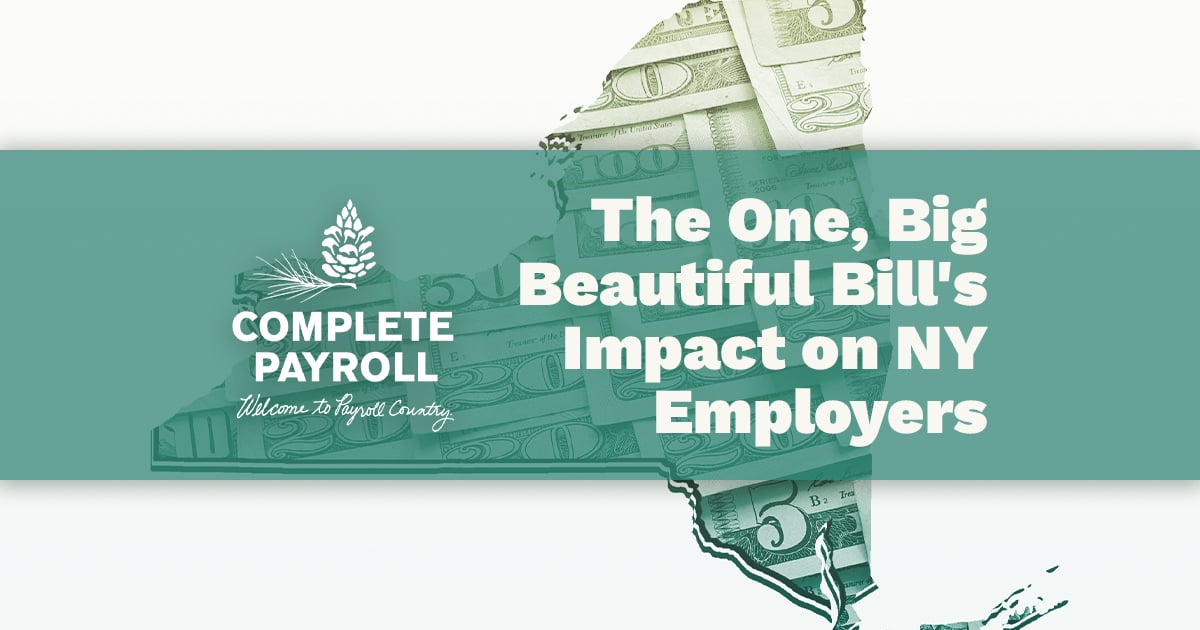NY Budget Clarifies Frequency of Pay for Manual Workers
Written by Rick Fish, Jr., C.P.P.

On May 9, 2025, New York Governor Kathy Hochul signed new legislation that clarifies the frequency of pay for manual workers, a change that impacts all employers in the state.
Weekly Pay and the Rise of Litigation
For years, New York Labor Law Section 191 has mandated weekly pay for "manual workers." However, this seemingly straightforward requirement led to a surge of litigation, particularly for smaller businesses. As the new legislation acknowledges, many employers, "unaware of the weekly requirement for classes of manual workers or that a certain classification of work is deemed manual work, pay the workers in-full and semi-monthly, and then are sued for large amounts of money despite already paying their employees full wages."
This wave of lawsuits stemmed in part from a 2019 appellate court decision that changed the previous understanding of the law, allowing manual workers to recover liquidated damages for late payments, even if they were ultimately paid in full. The six-year statute of limitations under New York Labor Law further fueled these claims, creating a significant burden for businesses.
Amended Legislation and a Compromise
Recognizing the need for a more balanced approach, Governor Hochul signed legislation on May 9, 2025, amending New York Labor Law (NYLL) § 198(1-a). This amendment represents a compromise, offering relief to employers while still protecting workers' rights.
The key change is that the legislation now limits the damages that employees, specifically "manual workers," can recover for pay frequency violations. Specifically, "manual workers are not immediately entitled to liquidated damages if they were paid regularly on at least a semi-monthly basis." This provides a measure of protection for employers who acted in good faith but may have been unaware of the strict weekly pay requirement.
This amendment also addresses inconsistencies in how the law was being interpreted by different courts, providing a more uniform legal framework.
Important Nuances: Interest, Future Compliance, and Repeat Offenders
While the new law provides some relief, it's crucial to understand the nuances:
- Interest on Delayed Payments: Even if liquidated damages are initially avoided, "once an employer is put on notice that the class of workers are manual, they owe interest for the weeks in which the workers were paid semi-monthly rather than weekly." The interest is calculated using a daily interest rate, ensuring workers are compensated for the time value of their wages.
- Future Compliance is Mandatory: The amended law makes it clear that "if the employer does not pay those manual workers weekly going forward, then they may be subject to liquidated damages." This emphasizes the ongoing obligation of employers to comply with the weekly pay requirement.
- Repeat Offender Penalties Remain: For employers with prior violations, the original penalty of liquidated damages, "equal to 100% of the late-paid wages," remains in effect. This provision aims to deter repeated non-compliance.
Key Takeaways and Next Steps for Employers
To navigate these changes effectively, we recommend taking the following steps:
- Thoroughly Review Worker Classifications: Accurately identify any "manual workers" based on their job duties, not just their title.
- Assess Past and Current Pay Practices: Evaluate your payroll practices to determine if any adjustments are needed to comply with the weekly pay requirement.
- Calculate and Pay Interest (If Applicable): If you've paid manual workers semi-monthly, calculate and pay the appropriate interest for past periods.
- Implement Weekly Pay Immediately (If Necessary): If you have manual workers being paid semi-monthly, switch to a weekly pay schedule to avoid future liquidated damages.
- Maintain Detailed Records: Document your employee classifications, pay schedules, and any corrective actions taken.
- Seek Professional Guidance: Consult with a payroll professional or legal counsel to ensure full compliance. Complete Payroll is here to assist you.
Staying compliant with New York labor law is essential, and Complete Payroll is committed to providing you with the expertise and support you need. We understand these changes can be complex, but by taking proactive steps, you can protect your business and ensure your employees are paid fairly. In Payroll Country, we're dedicated to helping you succeed. Please don't hesitate to reach out with any questions – we're always here to help.















 Get Instant Blog Notifications
Get Instant Blog Notifications


